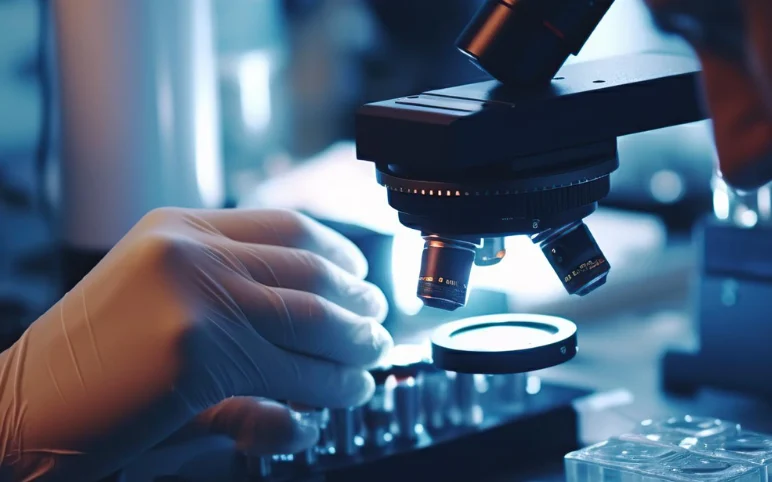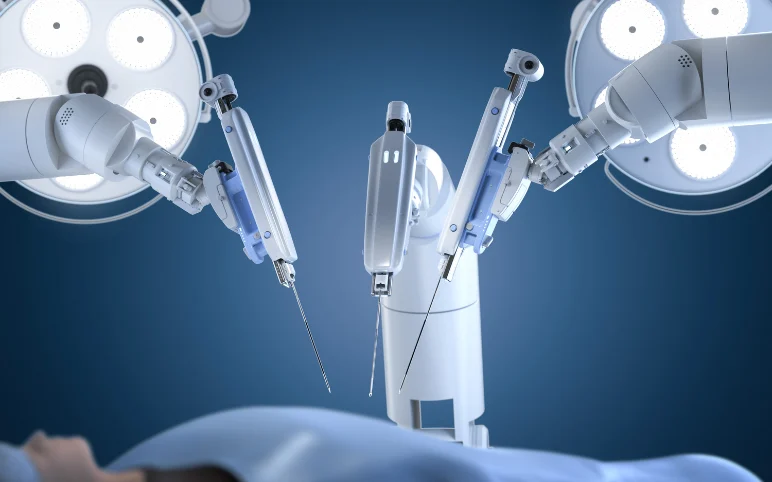Polymerase Chain Reaction (PCR) Market: Evaluating the Major Market Dynamics and Key Trends Driving the Growth
Apr 12, 2023
Table of Contents
Polymerase Chain Reaction, commonly called PCR, is one of the most well-known methods in molecular biology utilized for amplifying target sequences from a DNA template in an exponential manner. PCR has various applications, and the scope is vast in healthcare and other related domains. It was invented in 1983 by American biochemist Kary Mullis, a technician at the Cetus Corporation. The discovery and development of the polymerase chain reaction (PCR) have been a major breakthrough in the scientific world. It has paved the way for many incredible avenues for clinical and medical research. Over the years, several new breakthroughs have been registered in the Polymerase Chain Reaction Market. The technique is currently employed in environmental studies, food technology, and forensic science.
As per DelveInsight, the Global Polymerase Chain Reaction Market was valued at USD 4.90 billion in 2021, growing at a CAGR of 8.66% during the forecast period from 2022 to 2027 to reach USD 8.04 billion by 2027. Several major factors are driving the Polymerase Chain Reaction market growth. The rise in the prevalence of diseases caused by pathogens, the rise in technological innovations, and the increasing applications of Polymerase Chain Reaction in clinical diagnostics are the key factors driving the market growth. Due to growing demand and technological advancements in the domain, several major companies are actively working in the Global Polymerase Chain Reaction market. Several major collaborations and product launches have been observed in the domain. Similarly, the segment is anticipated to evolve immensely owing to ongoing technological advancements and a rise in the inclination of companies towards new product development.
Downloads
Click Here To Get the Article in PDF
Recent Articles
- Cardio Flow’s FreedomFlow Orbital Atherectomy Peripheral Platform; Medtronic’s Aurora EV- ICD Sys...
- Bausch + Lomb and Heidelberg Engineering Introduced SeeLuma; Oxford Nanopore and bioMérieux Signs...
- Accleus’s Toro-L Interbody Fusion System; Labcorp’s New Test for Skin Cancer; SERA Prognostics’s ...
- Top 5 Big Data Applications in Healthcare Revolutionizing Patient Care
- Eclipse, Medtronic, Aethlon, Cognoa, ObvioHealth, and others Continue to Veer MedTech Market Forward
What is Polymerase Chain Reaction? and What are Its Type and Key Applications?
Polymerase chain reaction (abbreviated PCR) is a laboratory technique utilized for rapidly producing (amplifying) millions to billions of copies of a specific segment of DNA, which can then be studied in greater detail. PCR has numerous applications spanning domains such as medicine, clinical research, law, ecology, and archaeology.
The Polymerase Chain Reaction can be divided into three major types, which are as follows –
- Conventional PCR – It is the most basic type of PCR reaction. Conventional PCR is simple to design and easy to perform, but It is time-consuming, as the reaction must finish before proceeding with the post-PCR analysis. Conventional PCR is a semi-quantitative end-point analysis because the amplified product is detected by agarose gel electrophoresis. The major application of Conventional PCR is for sequencing, genotyping, and cloning.
- Real-time RT-PCR – Real-Time PCR is also called quantitative PCR (qPCR). Real-Time PCR can overcome some of the key problems associated with Conventional PCR. It can measure DNA amplification at the early stages of the reaction with the help of a fluorescent reporter. Results are generated simultaneously as they accumulate in a “Real Time Detection” mode. Overall, it can measure the amount of PCR product where the reaction is still in the exponential phase (QPCR). The application and scope of Real-Time qPCR are much broader than Conventional PCR.
- Digital PCR – Digital PCR (dPCR) is a new and specialized approach that enables precise and highly accurate detection and quantification of nucleic acids. Digital PCR builds on traditional PCR amplification and fluorescent-probe–based detection methods and uses a limiting dilution analysis together with Poisson distribution to analyze the numbers of positive and negative droplets, yielding absolute quantitation of the target sequence.
Key Applications of Polymerase Chain Reaction
The Polymerase Chain Reaction has applications in various healthcare fields, such as clinical research, genetics, and forensic science. In the field of medicine, PCR can help in the testing of genetic disease mutations. They are highly important in various therapeutic areas, such as infectious diseases, cancer, genetic disorders, and hereditary disorders. They can help monitor the gene in gene therapy and detect disease-causing genes in the parents.
As per DelveInsight’s assessment, based on the application segment, the infectious diseases’ category is projected to register significant growth in revenue in the upcoming years. The increasing prevalence of infectious diseases caused by viruses, bacteria, fungi, and other pathogens is the major factor for the high growth rate of the infectious diseases’ category market. During the past two-three years, the demand for the infectious diseases’ category was high due to the rise in Covid-19 cases globally. Similarly, the hazardous diseases caused by pathogens are HIV, AIDS, and Tuberculosis, caused by viruses and bacteria, respectively, also drive the market growth.
The demand for Polymerase Chain Reaction is also increasing for other disease segments as well, like oncology. It is observed that late diagnosis is one of the key factors in cancer-related deaths. Polymerase Chain Reaction is one of the fastest and most sensitive tests for detecting tumors and starting early treatment.
Polymerase Chain Reaction Market Dynamics and Growth Factors
The increasing use of PCR techniques in the clinical diagnostics sector is one of the key drivers for high market growth. The other prominent factor responsible for the growth of the Polymerase Chain Reaction Market is its increasing use in diagnosing genetic disorders. Polymerase Chain Reaction can help monitor the gene in gene therapy and detect disease-causing genes in the parents. Similarly, it is also gaining immense prominence in the oncology field for the detection of cancer cells.
In recent times, during the Covid-19 spread, the real-time RT-PCR technique was employed heavily to detect the presence of SARS-CoV. It has proved to be a boon for the healthcare industry. The World Health Organization (2019) has stated the RT-PCR technique as a standard golden test for detecting SARS coronavirus as it has a very high sensitivity and specificity.
The continuous technological advancements taking place in PCR technology to improve product efficacy and the growing popularity among end users are actively stimulating the Polymerase Chain Reaction Market growth. However, the availability of alternative therapies and the high cost of the Polymerase Chain Reaction machine and reagents are anticipated to hamper the Polymerase Chain Reaction market growth.
Polymerase Chain Reaction Market – Regional Market Assessment
As per DelveInsight, North America is expected to generate significant revenue in the global Polymerase Chain Reaction market. Some of the key factors, such as the growing prevalence of infectious diseases and the increasing number of clinical research studies in the North American region, are anticipated to drive market growth in the region. PCR tests are a fast and highly accurate method to diagnose certain infectious diseases and genetic changes, due to which the demand is growing at an immense pace.
Moreover, owing to the high prevalence of infectious diseases in the United States, it expands the way for more clinical studies and the latest diagnostic technological developments. It is observed that millions of people are affected by inherited genetic disorders such as cystic fibrosis, sickle-cell anemia, Lynch syndrome, and several others in the region. Some genetic disorders are not diagnosed at birth, but lead to severe consequences at a later stage due to late detection of the syndrome. Overall, the presence of a large patient population base opens the way for the adoption of new technologies and collaborations to occur in clinical diagnostics areas, thereby ensuring high revenue prospects in the region for the companies working in the Polymerase Chain Reaction Market in the North American region.
Key Companies in the Polymerase Chain Reaction Market
Globally, several companies are active in the Polymerase Chain Reaction market. Some of the key companies in the market include Thermo Fisher Scientific Inc., Bio-Rad Laboratories Inc., Qiagen, Agilent Technologies Inc., Standard Biotools, F. Hoffmann-La Roche Ltd., Eppendorf, Avance Biosciences Inc., Merck & Co. Inc., Abbott, Promega Corporation, Takara Bio Inc., Endress+Hauser Group Services AG, BioMérieux, GenMark Diagnostics Inc., Grifols SA, Hologic Inc., BD, Sysmex Corporation, Stilla, and others.

Several new companies are anticipated to enter the market in the upcoming years owing to the higher return on investment and rise in demand. Similarly, commercial activities like collaborations, mergers & acquisitions, new product approval, and launches are anticipated to occur in the Polymerase Chain Reaction Market.
Major Clinical, Commercial, and Regulatory Developments in the Polymerase Chain Reaction Market
Several major developments have been registered in the Polymerase Chain Reaction domain in recent years, greatly influencing the market growth. Some of the key developments in the segment include –
- In January 2022, Qiagen collaborated with Atila Biosystems and Actome GmbH to use QIAcuity digital PCR instruments. Atila Biosystems will provide non-invasive prenatal testing, and Actome extends QIAcuity reach from genomics to proteomics.
- In June 2021, Bio-Rad collaborated with Seegene Inc. for the production of molecular diagnostic products related to infectious diseases. Through this collaboration, Seegene started to provide diagnostic tests for use on Bio-Rad’s LFX960x Real-Time PCR System for commercial use in the U.S. market.
- In March 2021, MatMa Corporation launched MYRTA, a new hand-held PCR device for POC & OTC Molecular Diagnostics.
- In March 2021, PCR Biosystems, specialists in DNA and RNA analysis, launched a set of IsoFast Bst Polymerase reagents for rapid, robust DNA & RNA amplification.
- In December 2020, Stilla Technologies launched a Polymerase Chain Reaction Mix reagent line for optimal performance with Crystal Digital PCR (nacia multiplex PCR Mix and nacia PCR Mix), which is optimized for better results and robustness for digital PCR applications.
Polymerase Chain Reaction Market – Future Analysis and Perspective
PCR is a highly accurate and rapid method for duplicating genetic material. Today, Polymerase Chain Reaction is an important part of medical and clinical research. The Polymerase Chain Reaction market is evolving immensely, becoming an essential tool for improving health outcomes. The application is not just limited to diagnostics and medical research. Many other sectors, such as agricultural testing and forensic science, are also actively working to incorporate the Polymerase Chain Reaction.
Similarly, major companies are developing more advanced variants of PCR, including digital PCR, which holds the potential to do faster analysis and can provide more precise results. The available appliances currently required to undertake PCR are bulky and expensive, but companies are focussing on developing more miniature devices that allow the benefits of PCR to be taken out of the laboratory. Therefore, considering the growing demand for this product type, numerous new products are anticipated to launch in the market with technological advancements. Similarly, the cost associated with the PCR is also high. But with time and large-scale product development, the cost is anticipated to get lower. Overall, the Polymerase Chain Reaction Market is undergoing tremendous transformation, and the segment is anticipated to evolve significantly in the coming years, thereby completely revolutionizing the life sciences segment.

Downloads
Article in PDF
Recent Articles
- SetPoint Medical Earns FDA Nod for First-of-Its-Kind Neuroimmune Modulation Therapy in RA; Body V...
- Medtronic’s Hugo Robotic-Assisted Surgery System Trial; Insightec’s Pivotal LIBERATE Clinical Tri...
- Edwards’s Pascal Precision System; Abbott’s New Spinal Cord Stimulation Device; Imagin to A...
- Top 5 Surgical Simulation Companies Revolutionizing Surgical Education
- FemTech Market: With 100+ Startups in the domain, Women Healthcare is Witnessing a Huge Upliftment



